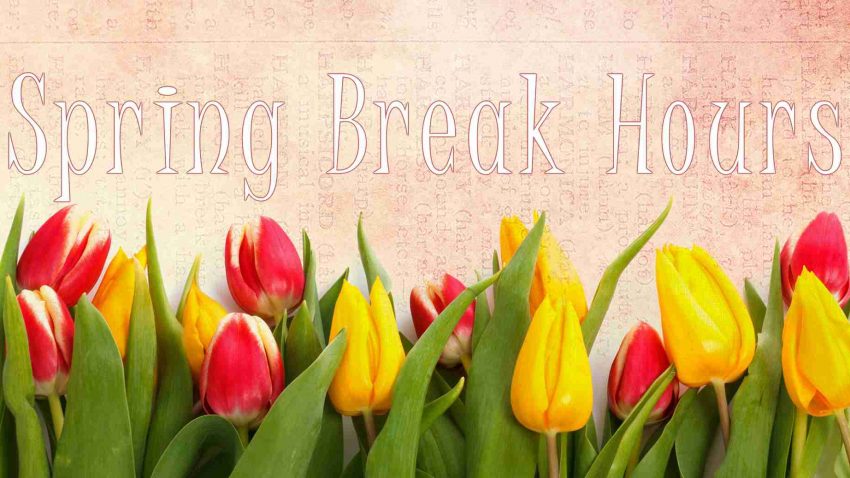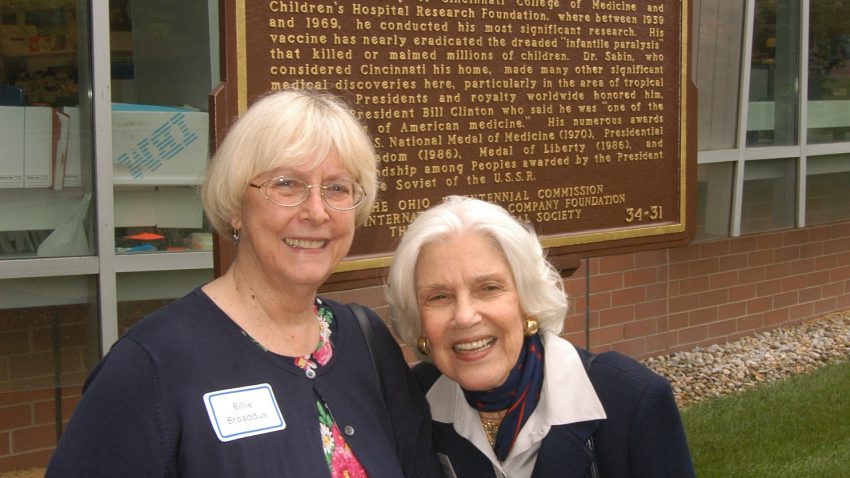
Billie Broaddus with Heloisa Sabin at the Albert B. Sabin Historical Marker Dedication, June, 2013
The Winkler Center was saddened last week to learn of the passing of former Health Sciences Librarian and Director of the Cincinnati Medical Heritage Center (Winkler Center), Billie Broaddus. Billie is remembered fondly by the colleagues who knew and worked with her. “She often used the ‘iron fist in the velvet glove’ and was able to achieve much through that approach,” remembered Senior Librarian Sharon Purtee.
From 1961 to 1971 Billie worked at the University of Kentucky Medical Library. She graduated from the University of Kentucky with a B.S. in History in 1973 and a M.S.L.S in Library Science in 1974. She began work at the University of Cincinnati Medical Center Library in August, 1974 as Head of Reference. She later became the Coordinator of Information Services and then Head of the Health Sciences Library. Serving a dual role in 1981, she directed both the Health Sciences Library and the History of Health Sciences Library. Later that year, she applied to become director of the historical collections, a job in which she could merge her love of history with her library experience.
She held the position of Director, University of Cincinnati Medical Heritage Center until her retirement in 2003. Billie was professionally active in several organizations, including the Medical Library Association, and served on many professional committees. She was elected President of the Midwest Chapter/Medical Library Association in 2001. Billie was also a member of the Archivists and Librarians in History of the Health Sciences and the Ohio Academy of Medical History, the American Association for the History of Medicine, the Ohio Academy of Sciences, the Society of Ohio Archivists and the Cincinnati Academy of Medicine History Committee.
During her tenure as Director of the Medical Heritage Center, the archives of alumni and faculty including, Drs. William Altemeier, Charles D. Aring, Stanley Block, Benjamin Felson, Martin Fisher, and Robert Kehoe were all added to the repository’s holdings. Forging personal relationships with the Sabin family, she was instrumental in bringing the Albert B. Sabin Papers to the Center. In addition, Broaddus supervised the centralization into one repository of the many decentralized historical collections of the departments within the College of Medicine.
She was adamant too that because the Heritage Center served a different audience than the Health Sciences Library, the two institutions keep somewhat distinct identities. In the early 1990s as the UC Libraries developed an online presence for its collections, Broaddus made sure the Heritage Center was given its own webpage. Under Broaddus’s leadership, the Medical Heritage Center became a preeminent resource center for the history of the health sciences. She served the University of Cincinnati Medical Center Libraries for almost 30 years and was appointed Librarian Emerita when she retired from the University of Cincinnati in February 2003.
Another colleague, Edith Starbuck, remembers “Billie was a generous colleague [who] shared her knowledge and skills without hesitation…[she] also knew how to bring history to life with her wealth of knowledge and ability to tell the stories about the individuals whose information and artifacts were housed in the Heritage Center.

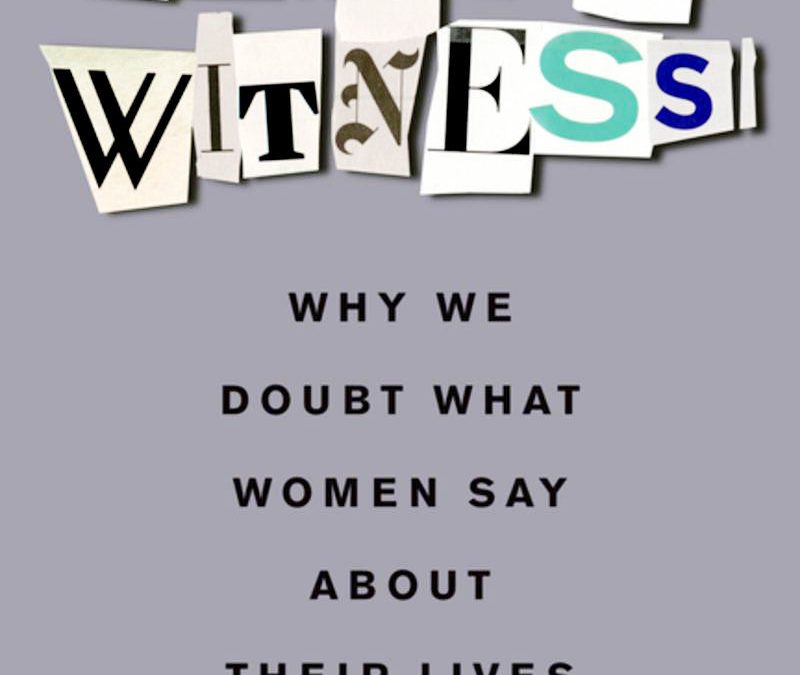
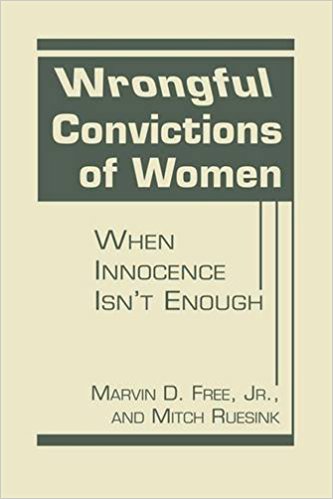
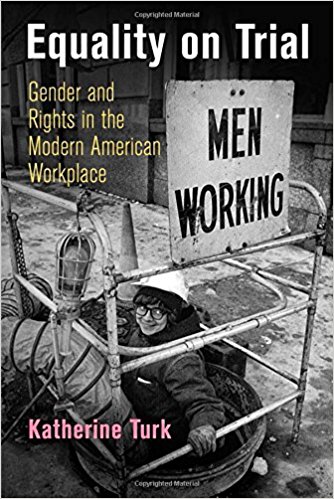
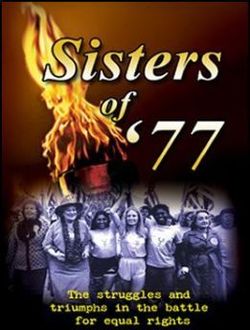

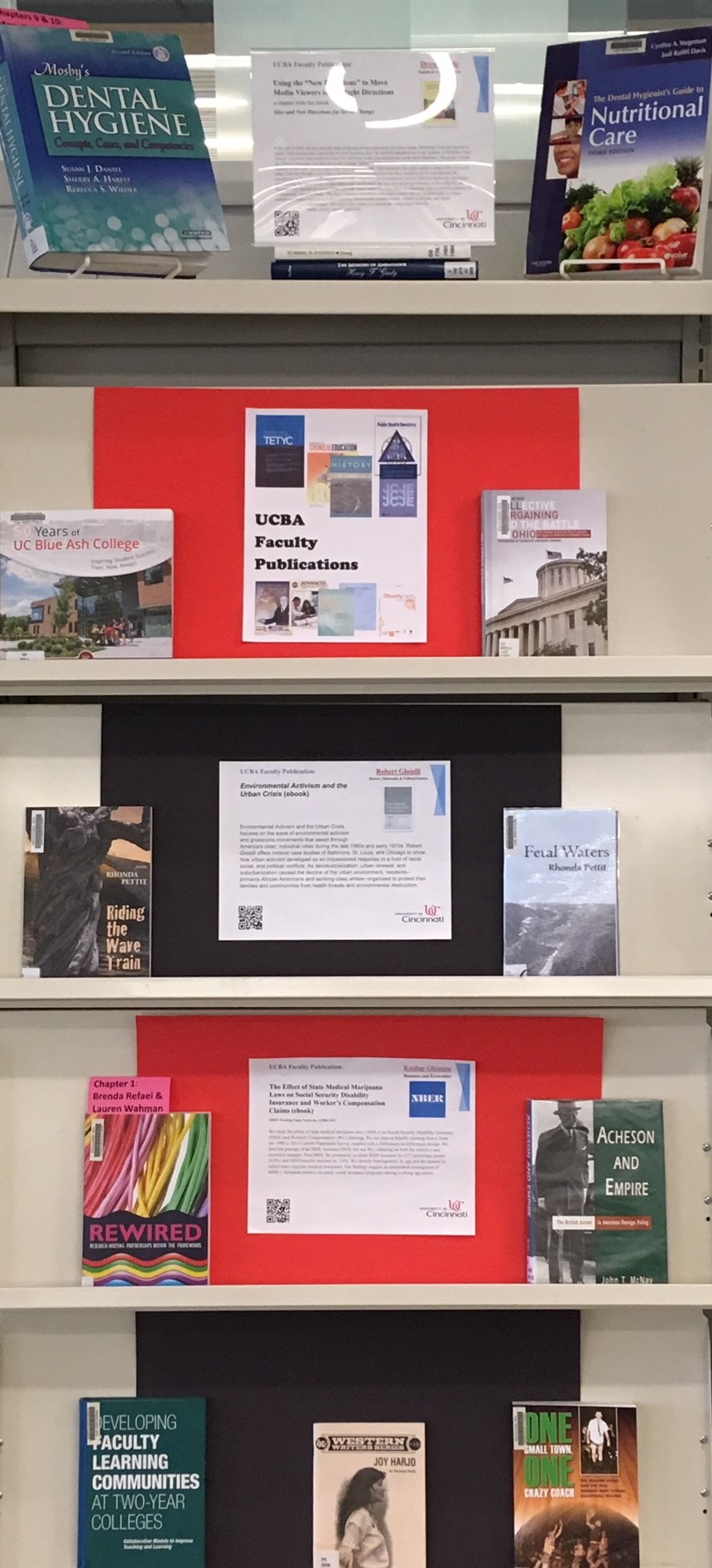
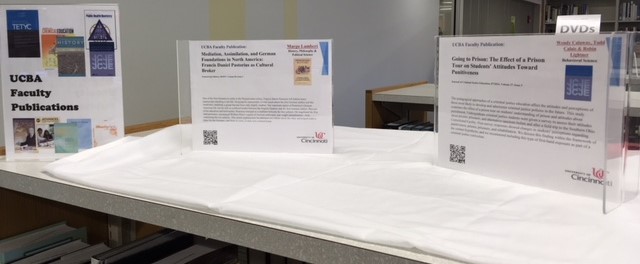

 Know of a good book to eat?! Create an Edible Book for UC Libraries International Edible Books Festival!
Know of a good book to eat?! Create an Edible Book for UC Libraries International Edible Books Festival!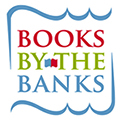 Looking for inspiration? Visit UC Libraries on
Looking for inspiration? Visit UC Libraries on 